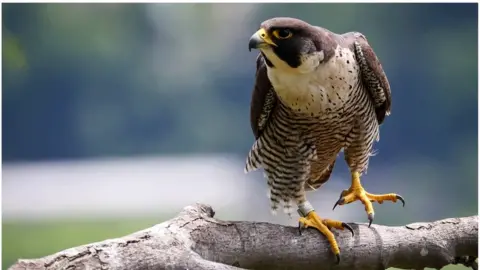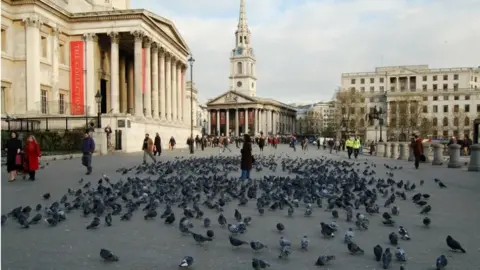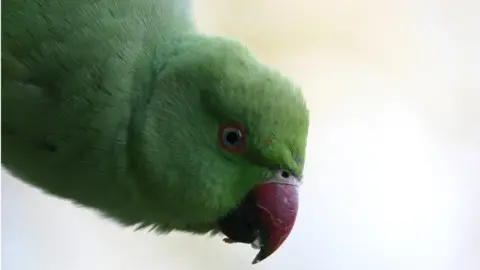London falcons swapped eating pigeons for parakeets in lockdown
 BBC
BBCLondon's peregrine falcons were forced to eat more parakeets during lockdown, scientists have found.
King's College London found that peregrines had to find alternatives as pigeons left urban areas during the Covid pandemic.
Researchers concluded it was because pigeons weren't being fed crumbs by passers-by.
One researcher told the BBC it was likely lockdown "had an impact on the diets of many birds of prey globally".
The scientists conducting the investigation used online nest cameras to study peregrine diets and reproduction, across 31 sites in 27 UK cities, over three breeding seasons.
The first period between March and June 2020 coincided with an England-wide Covid-19 related lockdown.

During this time, the diet of peregrine falcons consisted of 35% pigeons, 36% starlings and 18% parakeets.
In the subsequent periods monitored, pigeons made up almost 50% of the falcons' diet.
Brandon Mak from King's College London, said: "Peregrine falcons are not fussy eaters and they will eat whatever birds they can find.
"As pigeons moved away from central London during the lockdown as a result of less food, the peregrines had to find alternative food.
"Now that the pigeons are back in the city, the peregrine falcons have gone back to primarily eating them."
It's thought peregrine falcons, the world's fastest birds, first moved to UK cities in the 1990s, attracted by the abundance of pigeons.
London has one of the densest peregrine falcon population, with around 40 breeding pairs in London.

Bird conservation charities hope these birds could offer a solution to the rising population of ring-necked parakeets and pigeons that could be adversely affecting native wildlife.
Mr Mak said: "I am all for natural biological pest control and the peregrine falcons eating parakeets is a good way of controlling their population."
This research will contribute to the Global Anthropause Raptor Research Network that is looking at how birds of prey around the world were affected by lockdowns.

Follow BBC London on Facebook, Twitter and Instagram. Send your story ideas to [email protected]
